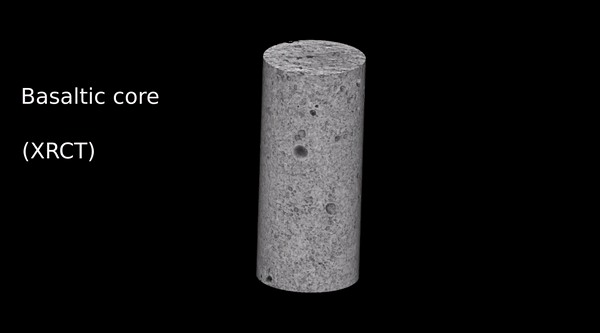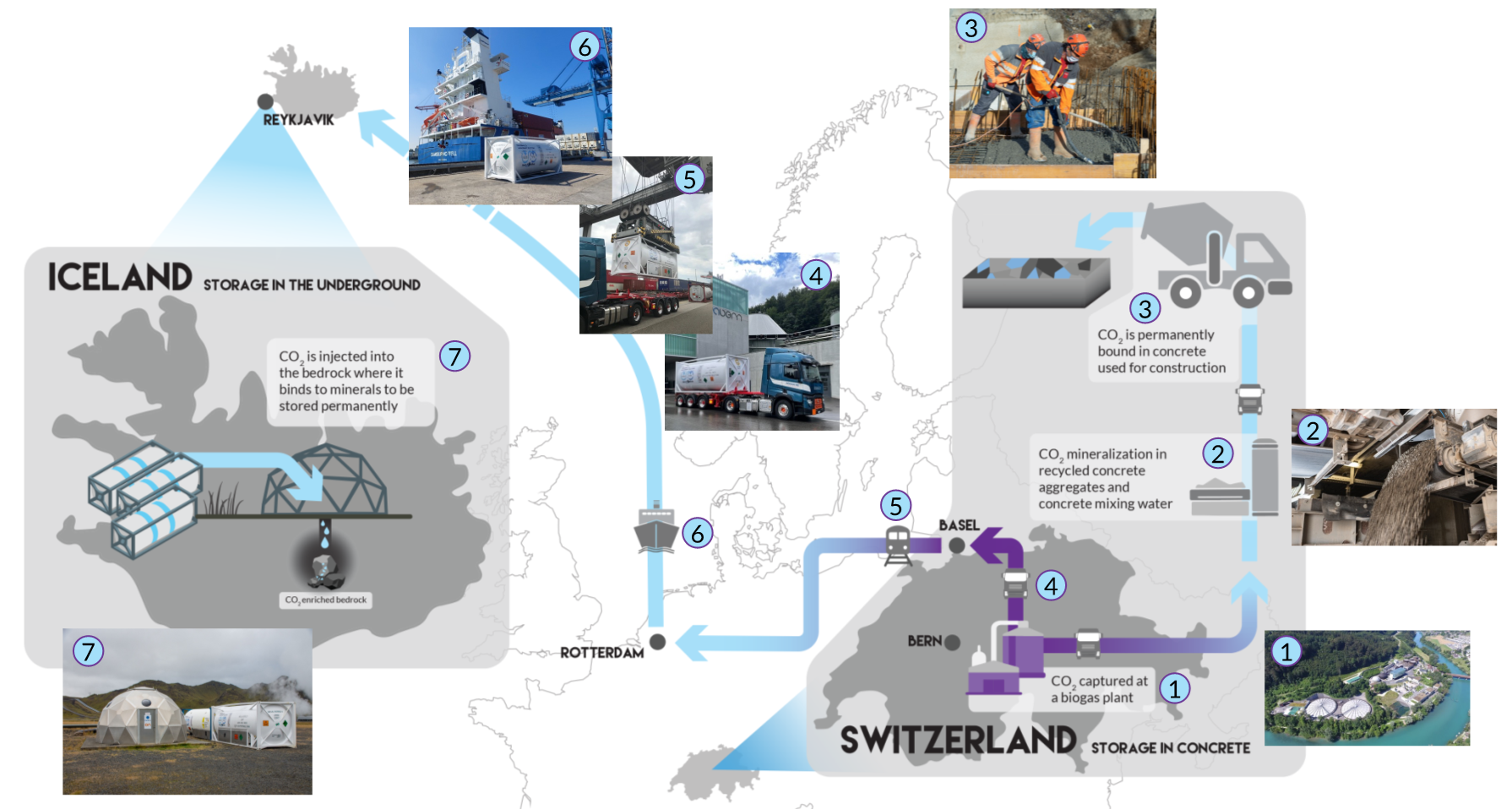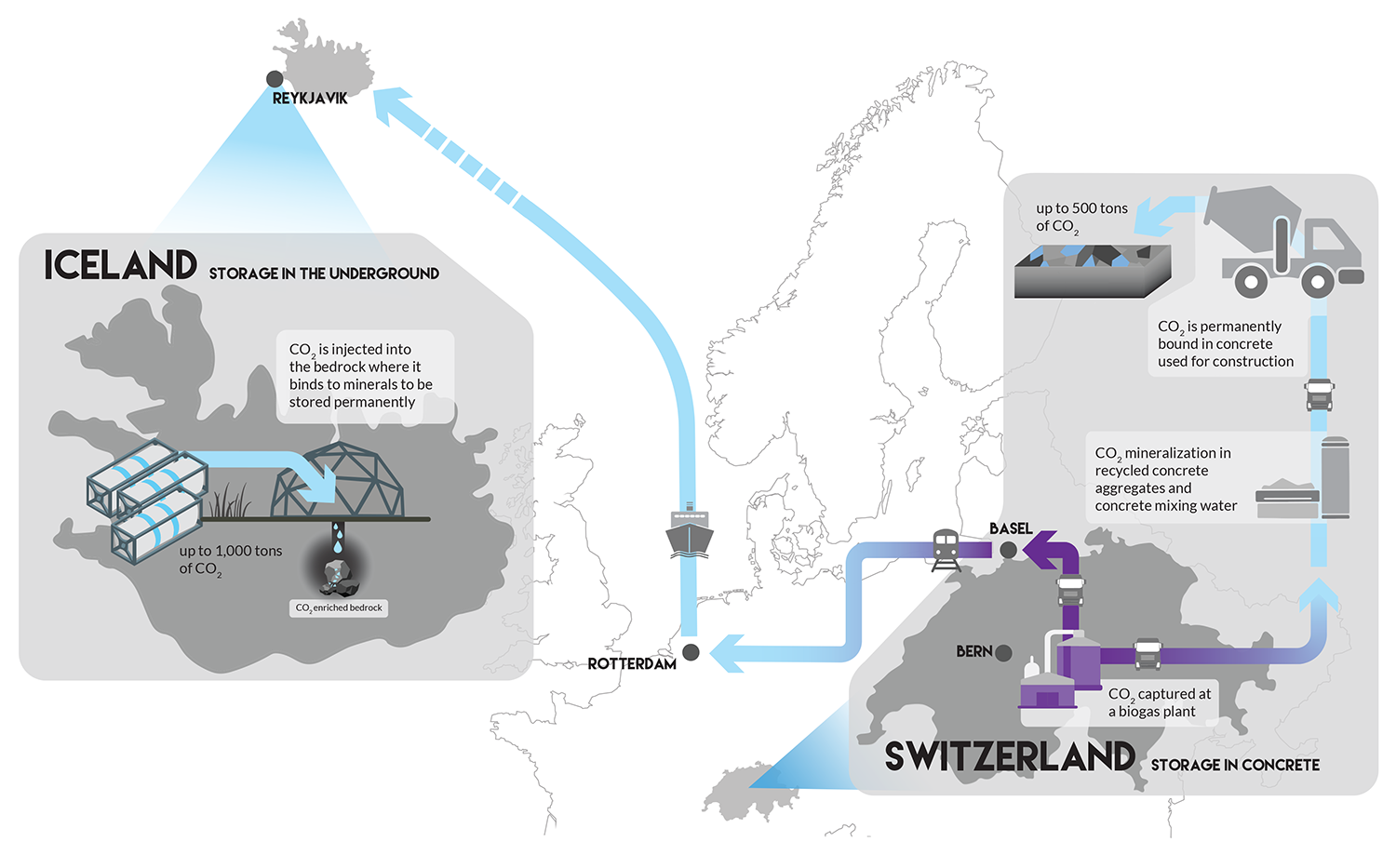DemoUpCARMA & DemoUpStorage - the projects in brief
DemoUpCARMA (Demonstration and Upscaling of CARbon dioxide MAnagement solutions for a net-zero Switzerland) is a pilot project lead by ETH Zurich. It aims to demonstrate the implementation and scale-up of two pathways leading to negative emissions:
- CO2 utilization and permanent storage in primary and recycled concrete in Switzerland using a novel technology.
- CO2 transport and permanent storage in a geological reservoir abroad.
DemoUpCARMA will assess the optimal design of these pathways and their upscaling potential considering technological, economical, regulatory, political, and societal factors in the mid- to long-term. Negative emissions are an integral component to reduce Switzerland’s greenhouse gas emissions by 2050 to net zero, and to reach the country’s climate goals.
DemoUpStorage is a partner project of DemoUpCARMA and linked to its second pathway. DemoUpStorage involves the investigation and monitoring of the geological reservoir abroad and its potential to store larger quantities of CO2.
DemoUpCARMA and DemoUpStorage are funded and supported by the Swiss Federal Office of Energy (SFOE) and the Federal Office for the Environment (FOEN). It brings together 24 partners from academia and industry with some of them providing additional financial and in-kind contributions.
Supporters

DemoUpCARMA is funded and supported by the Swiss Federal Office of Energy (SFOE) and the Federal Office for the Environment (FOEN).
Project Website
The projects DemoUpCARMA & DemoUpStorage have come to an end. This website is no longer being updated. However, it remains accessible and provides full access to all existing content.
The final reports of all work packages can be downloaded from the following link: https://www.aramis.admin.ch/Texte/?ProjectID=49400
News & Events
New DemoUp blog text on the interplay of pore network and flow

A new blog post written by Eleni Stavropoulou, a researcher at EPFL, illustrates findings from laboratory investigations conducted as part of the DemoUpStorage project. Her study focused on examining the mineral carbonation of basalt cores with varying porosity levels. By exposing these cores to CO2-rich seawater and developing numerical models to analyze their pore networks, Stavropoulou uncovered the significant role carbon mineralization has on flow properties of the basaltic material.
For further insights into the study, refer to the full blog post.
The importance of pilot projects to tackle the climate crisis

In a recently published paper in Nature Chemical Engineering, Viola Becattini, Marco Mazzotti and Stefan Wiemer discuss the role of pilot projects such as DemoUpCARMA.
The project aimed at finding solutions to manage hard-to-abate and unavoidable CO2 emissions. By not only simulating this, but also effectively storing CO2 in Swiss concrete and Icelandic basalt, unique insights were gained. Among other things, the authors emphasise the importance of interdisciplinary collaboration, capacity and competence building, and the role of academia in driving climate solutions. The success of initiatives like DemoUpCARMA underscores the pivotal role of scientists in overcoming climate change. The idea of launching a scientists-led pilot project, small enough to be feasible but innovative enough to provide a step change in knowledge, engagement, and capacity creation, has been successful.
The paper is accessible via the following link: "Accelerating the climate transition through scientists-led CO2 management pilots"



